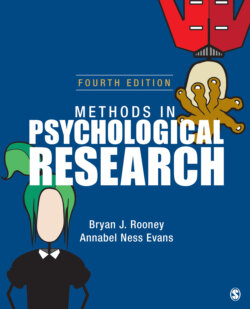Читать книгу Methods in Psychological Research - Annabel Ness Evans - Страница 36
На сайте Литреса книга снята с продажи.
Theories, Concepts, and Hypotheses
ОглавлениеThe objectives of science can be seen in theories. We use theories to describe what is known in an area, present an explanation of those findings, and make predictions for further research. A theory is a formal statement of how concepts are related. Concepts are the general category of ideas that are represented by our variables. Theories may be very general and account for many phenomena, such as Skinner’s behavioral theory, with applications to all of human behavior, or more specific and limited in scope, such as Epling and Pierce’s theory of activity-based anorexia.
If we were all-knowing, we would not need theories. We would know how the universe worked, and research would be predictable and boring. Fortunately for those of us who enjoy research, we do not have all the answers, so we construct theories of how we think the world works. The main advantage of a theory is that it provides an explanation of how concepts are related. So rather than having to remember a whole library of specific research findings, we need only to remember and apply the theory. The theory will describe how general concepts are related.
Theories are an integral part of the research process. In addition to explaining what we already know, we use theories to make new predictions that can be empirically tested. By using specific instances of the general concepts, we can derive new testable hypotheses. A hypothesis is a prediction of how concepts are related that is often deduced from a theory. We then conduct our research to test the hypothesis. If the hypothesis is supported by the research, the theory is strengthened. On the other hand, if the hypothesis is not supported, the theory may have to be altered. Theories do not live forever. They start out wonderfully, explaining and organizing a whole collection of observations. Over their life, they gain support from some research, they may make surprising new predictions, and they may fail to explain some research findings. When enough research is compiled that does not fit the theory, a new theory will be proposed.
So what is the nature of empirical research? Where do scientists get their ideas, and how do they go about meeting their goals to describe, explain, predict, and control phenomena? Let’s look at five common reasons researchers might have for conducting research.
